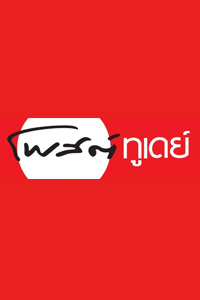With less than five days before the Aug 7 constitutional referendum, it remains to be seen what choice Thai voters will make regarding the draft charter. Whatever the outcome of the referendum, the road ahead for the National Council for Peace and Order (NCPO) will be a rough one.
No matter how the majority casts their vote, there will always be a cloud on the horizon.
On the surface, it appears if the draft charter sails through, things should be smooth in accordance with the political roadmap mapped out by the NCPO. But that may not be the case given the political climate.
In this scenario, the NCPO which has run the country for more than two years since the 2014 coup, will remain in power until a new government is formed and the relevant organic laws are put in place. Inevitably, the scenario will likely see some political turmoil.

Four organic laws -- those governing political parties, general elections, senator appointments and the Office of the Election Commission -- are needed since they will provide the legal basis for a general election for the House of Representatives. This will be an immediate, crucial step for the regime.
The drafting process of these organic laws will be carried out by the current Constitution Drafting Committee (CDC) led by Meechai Ruchupan who will also oversee the drafting of six other organic laws. After that, the laws will be submitted to the National Legislative Assembly (NLA) for consideration.
The NLA may request amendments to any of the four laws in which a joint NLA-CDC panel will be appointed to work on the amendments.
The entire legislative process will take four to five months. Once the laws take effect, a general election can be held within 150 days or around five months.
Under this scenario, the path to democracy can be stretched a little longer as the CDC is to amend the charter to give the mandate to an appointed Senate in naming the prime minister in accordance with the extra question. This amended charter must be submitted to the Constitutional Court for approval. This process will take about one month.
While this may not seem like a bumpy ride for the NCPO, the new role of the appointed Senate will be a thorn in the regime's side. Opponents of the constitution may take the opportunity to make a move against the supreme law, citing the suppression of opposing views on the charter in the lead-up to the referendum.

Members of civil groups cross their hands as a sign to vote 'No' on the draft constitution, during a July 24 seminar at Thammasat University. (File photo by Wichan Charoenkiatpakul)
Even though any political movement in the post-referendum period will not disrupt the enactment of the charter, the credibility of the supreme law will be questioned.
This means the credibility of a general election will also be at stake. Major political parties which have recently decided not to endorse the draft charter may continue to stand firm in their position and challenge the legitimacy of the constitution during their campaigns towards the general election.
It is highly possible some political parties may use this opportunity to trigger further political protests.
All of this will have a domino effect on the NCPO chair and prime minister Prayut Chan-o-cha who will also lead the selection of the first set of senators.
Political turmoil that stems from the Senate's new role to pick the prime minister will be inevitable.
In the second scenario where the draft charter is voted down on Sunday, immediate political turbulence can be expected due to the lack of clarity over the next step for drafting a new constitution. It will be up to the current regime to decide what comes next.
The NCPO will be closely watched regarding what options they offer as the next step. The regime may either draft a new charter themselves or appoint a new committee to carry out this task.
Moreover, it is more likely that there will not be a referendum required for the new charter as it will be considered time-consuming and costly.
The situation will intensify if the new draft charter features more controversial and dubious provisions. Such political tensions could also worsen if the NCPO's power is prolonged by the new draft.
If the "Vote No" camp wins in the referendum, opponents of the draft charter will capitalise on the situation to mobilise their supporters to oust Gen Prayut.
However, it is less likely that this sort of effort will pressure Gen Prayut to leave office. Instead, the NCPO leader may use his sweeping powers to control street political movements against him, and this will boil up into political unrest.
Inevitably, there will always be political turmoil on the horizon no matter what the referendum outcome is. The extent of it will depend on what action the NCPO takes to manage and control it.
Thanapon Bangyikan is a journalist at Post Today newspaper.
